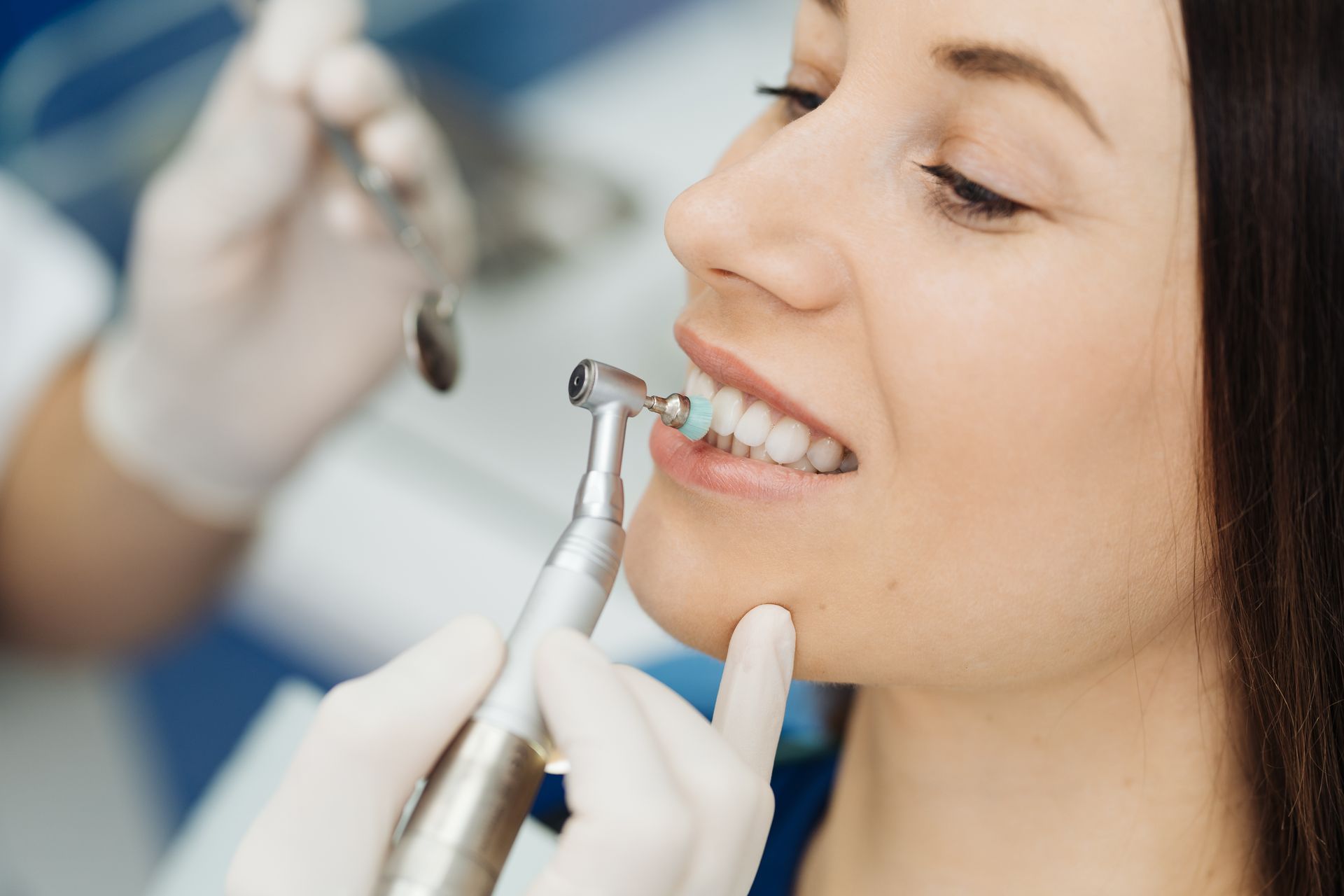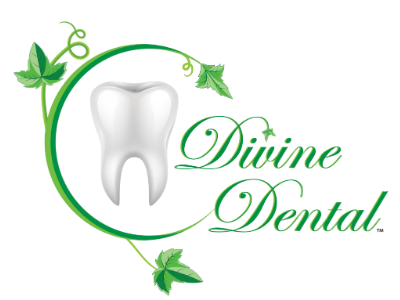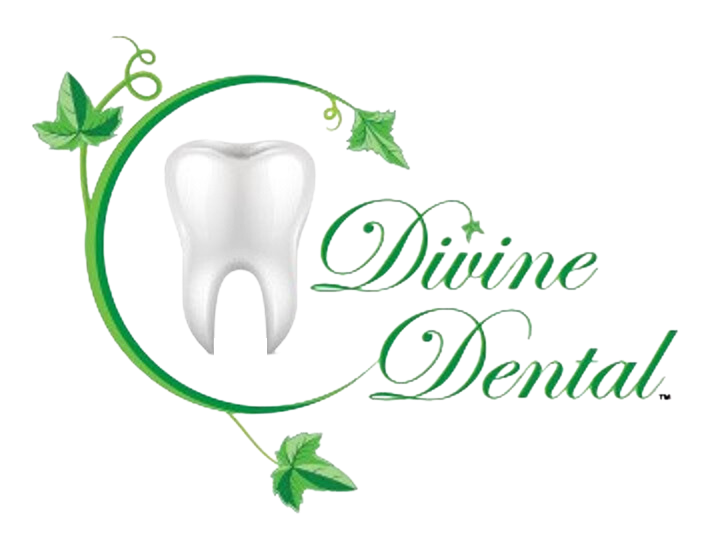Preventative Dentistry: Your Key To Maintaining Healthy Teeth and Gums
Preventative dentistry is the key to maintaining healthy teeth and gums. By taking proactive measures to prevent oral health issues, such as gum disease and tooth decay, you can ensure a lifetime of strong and beautiful teeth. Regular dental care, including dental exams, professional cleanings, and fluoride treatments, plays a crucial role in preventing dental issues and preserving your oral health.
Good oral hygiene habits at home, such as brushing and flossing daily, also contribute to a healthy smile. Neglecting preventative dentistry can lead to serious oral health problems, including tooth loss and oral infections. By prioritizing preventative care, you can protect your teeth, gums, and overall well-being. So, make it a habit to visit your dentist regularly, maintain a diligent oral hygiene routine, and take proactive measures to keep your smile strong and healthy.

Oral Hygiene Habits for Healthy Teeth and Gums
Maintaining healthy teeth and gums is essential for overall oral health. One of the most effective ways to achieve this is through practicing preventative dentistry. By adopting good oral hygiene habits and making regular visits to the dentist, you can significantly reduce the risk of tooth decay, gum disease, and other oral health issues.
Brushing Regularly
Brushing regularly is crucial for maintaining healthy teeth and gums. It is the foundation of good oral hygiene and plays a vital role in preventing gum disease and tooth decay.
Proper brushing technique and frequency are key to removing plaque, a sticky film of bacteria that builds up on teeth. When plaque is not removed, it can harden into tartar, leading to gum inflammation and potential tooth loss. Brushing at least twice a day effectively removes plaque and reduces the risk of these oral health issues.
To ensure effective brushing, it is important to use a soft-bristled toothbrush. The soft bristles are gentle on tooth enamel and gums, preventing damage and sensitivity. Brushing should include all tooth surfaces, including the front, back, and chewing surfaces.
To maximize the benefits of brushing, it is recommended to brush for at least two minutes each time. This duration allows for thorough teeth cleaning and the removal of plaque and food particles. Additionally, using fluoride toothpaste helps strengthen tooth enamel and further protects against tooth decay.
By brushing regularly with proper technique and using a soft-bristled toothbrush, individuals can maintain healthy teeth and gums, reducing the risk of gum disease, tooth decay, and other oral health problems.
Flossing Daily
Flossing daily is an essential part of maintaining healthy teeth and gums. While brushing can effectively clean the surfaces of the teeth, flossing reaches the areas that a toothbrush cannot, such as between the teeth and along the gumline. These spaces are often where plaque and food particles accumulate, leading to gum disease and tooth decay if not properly removed.
Proper flossing technique is crucial for optimal results. Start by using a fresh section of floss for each tooth, as reusing the same section can transfer bacteria. Gently glide the floss in a C-shape around each tooth, moving it up and down to remove plaque and debris. Make sure to reach below the gumline to eliminate any hidden buildup.
Using the Right Toothpaste
Using the right toothpaste is essential for maintaining healthy teeth and gums. Not all toothpastes are created equal, and choosing the right one can make a significant difference in your oral health. One important factor to consider is fluoride content. Toothpaste with fluoride can help prevent tooth decay and strengthen tooth enamel.
Fluoride is a natural mineral that helps to remineralize tooth enamel and make it more resistant to acid attacks from plaque and bacteria. Regular use of fluoride toothpaste can help prevent cavities and reduce the risk of tooth decay. It is especially important for children and adults who are prone to dental issues.
Apart from fluoride, there are various types of toothpaste available to address specific needs. For those with sensitive teeth, toothpaste formulated for sensitivity can help alleviate discomfort caused by hot or cold foods and drinks. Whitening toothpaste is another popular option that can help remove surface stains and give you a brighter smile.
When selecting a toothpaste, it is important to read the labels and look for ones that are recommended by dental professionals. Additionally, it is crucial to maintain a good oral hygiene routine, which includes brushing at least twice a day with fluoride toothpaste and regular visits to the dentist for professional cleanings and check-ups.
Eating a Balanced Diet
Eating a balanced diet is essential for maintaining healthy teeth and gums. By incorporating the right food groups into our daily meals, we can provide our bodies with the nutrients they need for optimal oral health.
Fruits and vegetables are a crucial part of a balanced diet and play a significant role in maintaining healthy teeth and gums. These foods are rich in vitamins and minerals, such as vitamin C, which helps to strengthen gum tissue and prevent gum disease. Crunchy fruits and vegetables like apples and celery also stimulate saliva production, aiding in the natural cleansing of the mouth.
Lean proteins, such as chicken, fish, and nuts, are not only beneficial for muscle development but also contribute to a healthy mouth. Protein-rich foods contain phosphorus, which is vital for the formation and maintenance of tooth enamel.
Whole grains, such as brown rice and whole wheat bread, are high in complex carbohydrates and fiber. These foods require more chewing, which stimulates saliva production and helps to remove food particles from the teeth.
Dairy products, such as cheese, milk, and yogurt, are excellent sources of calcium and phosphorus. These minerals help to strengthen tooth enamel and protect against tooth decay.
While it is important to focus on consuming nutrient-rich foods, it is also crucial to limit the intake of sugary and acidic foods. These types of foods can increase the risk of tooth decay and gum disease.
Limiting Sugary Foods and Beverages
Limiting sugary foods and beverages is crucial for maintaining healthy teeth and gums. Excessive sugar consumption can lead to tooth decay and gum disease, two common oral health issues.
When we consume sugary foods and beverages, the bacteria in our mouths feed on the sugar and produce acid as a byproduct. This acid erodes the enamel, the protective outer layer of the teeth, making them vulnerable to tooth decay. Over time, if left untreated, tooth decay can progress and lead to tooth loss.
Gum disease is also a concern when it comes to excessive sugar consumption. The bacteria in our mouths form plaque, a sticky film that can irritate and inflame the gums. The constant exposure to sugar fuels the growth of harmful bacteria, which can lead to gum disease. If not addressed, gum disease can cause gum recession, bone loss, and eventually, tooth loss.
To prevent tooth decay and gum disease, it is important to limit sugary foods and beverages. Examples of sugary culprits to avoid include soda, candy, cookies, cakes, and pastries. Instead, opt for healthier alternatives like water, unsweetened tea, fresh fruits, and vegetables.
By reducing our intake of sugary foods and beverages, we can significantly improve our oral health, prevent tooth decay and gum disease, and maintain healthy teeth and gums for a lifetime.
Proper Tongue Care
Proper tongue care is an essential part of maintaining healthy teeth and gums. Many people underestimate the role the tongue plays in oral health, but neglecting it can have detrimental effects.
Bacteria can easily accumulate on the surface of the tongue, leading to bad breath and oral health issues. The tongue's rough texture and warm, moist environment make it an ideal breeding ground for harmful bacteria. These bacteria produce sulfur compounds that contribute to unpleasant breath.
To clean the tongue effectively, a tongue scraper or toothbrush can be used. Gently cleaning the tongue from back to front helps remove bacteria, food particles, and dead cells. It is important to be gentle to avoid irritating or damaging the delicate taste buds on the tongue.
Incorporating tongue care into your daily oral hygiene routine can significantly improve your oral health. By removing bacteria from the tongue, you can reduce the risk of bad breath and prevent the spread of harmful bacteria to your teeth and gums.
Avoiding Tobacco Products
Avoiding tobacco products is crucial for maintaining healthy teeth and gums. Tobacco use not only stains the teeth and causes bad breath, but it also significantly increases the risk of gum disease, tooth loss, and oral cancer.
Smoking and using tobacco products have harmful effects on dental health. Smoking weakens the body's immune system, making it harder to fight off infections in the gums. This can lead to gum disease, characterized by swollen, bleeding gums and eventually tooth loss if left untreated. Tobacco use also interferes with saliva production, which is essential for rinsing away harmful bacteria and maintaining a healthy mouth.
Furthermore, smoking is one of the leading causes of oral cancer. The chemicals in tobacco products can damage the cells in the mouth and throat, increasing the risk of developing cancer. Oral cancer can be life-threatening if not detected and treated early.
If you are currently using tobacco products, quitting is the best decision you can make for your dental health. Speak to your healthcare provider for advice and support on quitting. There are various strategies and resources available, including nicotine replacement therapy and counseling programs. Quitting smoking not only improves your dental health but also has significant benefits for your overall health and well-being.
Professional Cleanings to Maintain Oral Health
Professional cleanings are an essential aspect of maintaining optimal oral health. While brushing and flossing at home are important, they are not always enough to remove all the plaque, tartar, and bacteria from your teeth and gums. Regular dental cleanings, performed by a dental hygienist or dentist, can effectively clean areas that brushing and flossing alone cannot reach.
During a professional cleaning, the hygienist or dentist will use specialized tools to remove plaque and tartar buildup from your teeth. Plaque is a sticky film of bacteria that forms on the surfaces of your teeth and can lead to cavities and gum disease if left untreated. Tartar, on the other hand, is hardened plaque that can only be removed with professional cleaning tools.
By removing plaque and tartar, professional cleanings help prevent gum disease, also known as periodontal disease. Gum disease occurs when the gums become inflamed and infected due to the presence of bacteria. If left untreated, gum disease can lead to tooth loss. Regular cleanings can also help prevent tooth decay and bad breath by removing plaque and bacteria that contribute to these oral health issues.
In addition to cleaning your teeth, dental professionals can also provide recommendations for improving your oral hygiene habits and offer guidance on proper brushing and flossing techniques. They may also perform an oral cancer screening during your cleaning, helping to detect any early signs of oral cancer.
Overall, professional cleanings play a crucial role in maintaining a healthy smile and preventing oral health problems. Regular visits to your dentist for cleanings are strongly recommended to ensure optimal oral health.
Fluoride Treatment and its Benefits to Oral Health
Fluoride treatment is a key component of preventive dentistry that offers numerous benefits to oral health. One of the primary advantages of fluoride treatment is its ability to strengthen tooth enamel, the protective outer layer of the teeth. Strong enamel is essential in preventing tooth decay and cavities.
Fluoride works by remineralizing weakened enamel, making it more resistant to acid attacks from bacteria and acidic foods. It also helps reverse early signs of tooth decay, preventing the need for more extensive dental procedures in the future.
There are various forms of fluoride treatment available, including fluoride varnish, fluoride gel, and fluoride mouth rinse. Fluoride varnish is commonly used for both children and adults. It is applied to the teeth as a thin, protective coating that gradually releases fluoride over time. Fluoride gel can be applied with a mouthguard, and fluoride mouth rinse is swished around the mouth and then spit out.
The frequency of fluoride treatment varies based on age and individual risk factors. Dentists may recommend fluoride treatment every six months for children and adults with a moderate risk of tooth decay, while those with a higher risk may require more frequent treatments.
Individuals with dry mouth or a heightened risk of tooth decay, such as those with certain medical conditions, can especially benefit from fluoride treatment. Dry mouth reduces saliva production, leaving teeth more vulnerable to decay. Fluoride treatment can help counteract this by strengthening tooth enamel and providing added protection against acid attacks.
Overall, fluoride treatment is a highly effective preventive measure that improves oral health by strengthening tooth enamel, preventing tooth decay, and benefiting individuals with dry mouth or a high risk of tooth decay.

Conclusion
In conclusion, preventative dentistry is a key component of maintaining healthy teeth and gums. It helps to reduce the risk of cavities, gum disease, and other oral health issues. Regular dental visits and proper at-home oral hygiene are essential for keeping your mouth healthy and happy. Taking the time to practice preventative dentistry will help you avoid costly treatments down the road and keep your smile looking its best.



